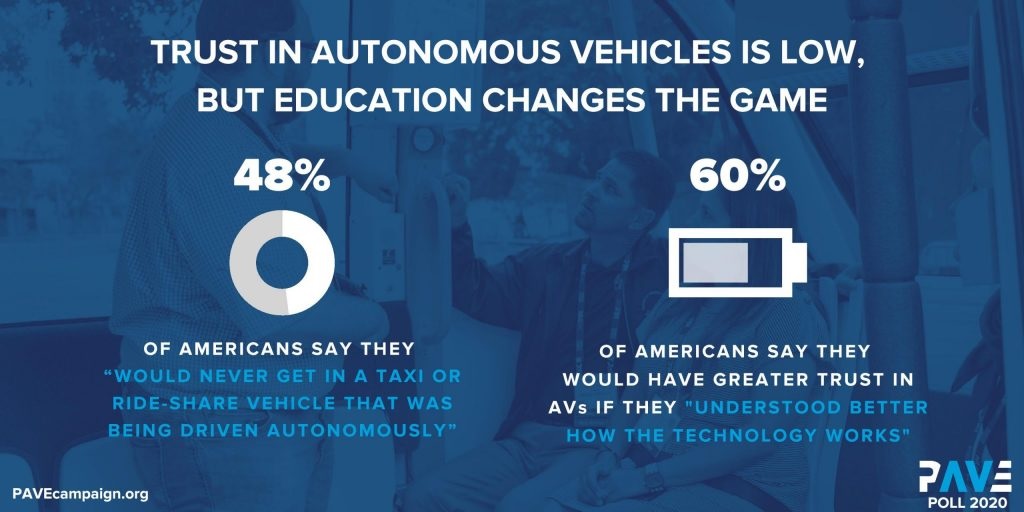Partners for Automated Vehicle Education (PAVE)
When Partners for Automated Vehicle Education (PAVE) released our first poll on perceptions of autonomous vehicles and driver assistance systems, most of the coverage focused on the top line results: most of the 1,200 Americans polled are skeptical of AVs and their potential benefits.
It is understandable, of course, that examples of the public's distrust — such as 48% of Americans saying they would never ride in an autonomous taxi — garnered the most attention. After years of hype suggesting robotaxis would be ubiquitous by now, it was inevitable that the tiny (or outright delayed) deployments we've seen would prompt some schadenfreude. What's frustrating is that by focusing on the skepticism, the media overlooked an opportunity to explain where it actually comes from.
Americans are more unfamiliar with AVs than they are afraid of, or resistant to, them
In fact, the data from PAVE's poll points to the same factor again and again: Americans are more unfamiliar with AVs than they are afraid of, or resistant to, them. Literally. When asked to rate their reaction to various terms for AVs on a scale of 100 (entirely positive) to -100 (entirely negative), Americans rated "driverless car" as -13 and "autonomous vehicle" as -3. When using the same scale to rate their knowledge of AVs, with -100 meaning they know nothing and 100 meaning they know everything, Americans scored their knowledge level -21.
This lack of knowledge means that Americans aren't judging AVs on the basis of bad news — like the fatal 2018 crash of an Uber test vehicle in Tempe, Arizona, which only 7% of Americans say they know a lot about. Fascinatingly, that 7% are far more likely to say they would join a waiting list for an AV (43%) than those who say they know only a little (19%) or nothing about the tragic crash (13%). The more you know about AVs, both good and bad, the more likely you are to trust them.
In fact, lack of knowledge is so fundamental to negative perceptions of AVs that 60% say they would have greater trust in AVs if they understood better how the technology works. Simply getting a ride in an AV would improve trust in the technology for 58% of Americans. Even having advanced driver assistance systems in your car is correlated with higher trust in AVs, showing that experience with even non-autonomous driving automation can dispel concerns about AVs.
None of this comes as a big surprise to PAVE. We've seen that perceptions of AVs have been unmoored from the reality of the technology for years now, and that education and personal exposure can flip those negative perceptions in a single afternoon. Rather than giving up in despair, these results only prove how impactful our mission to educate the public about this important technology can be.





